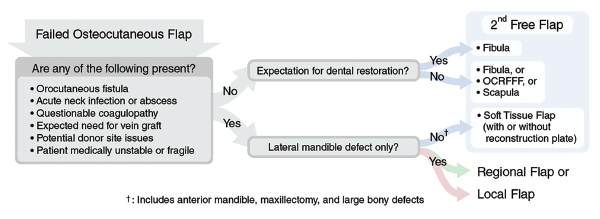Recurrent respiratory papillomatosis continues to decline since the implementation of the HPV vaccination, and advancements show promise in RRP medical management.
Younger Age, Conscientiousness Rate Associated with Activity Avoidance in Chronic Rhinosinusitis
A look at the characteristics associated with avoidance of daily activities in patients with chronic rhinosinusitis.
Evidence Supports Current Recommendation Regarding Suture Position in Arytenoid Adduction
Arytenoid adduction suture placed in the anterior inferior thyroid ala results in the best acoustic, aerodynamic, and voice quality outcomes.

Multi-institutional Review Offers Basis for Management of Failed Free Flaps to Head and Neck
The recipient site of the initial failed free flap is the most important factor affecting its management and, in many cases, a second free flap in the acute setting is appropriate.
No Significant Evidence to Support Neck Drain Insertion After Thyroidectomies
The practice of neck drain insertions in patients undergoing thyroidectomies is associated with higher risks of hematomas and surgical site infections, and longer hospital stays.
Prolonged Hospital Stay After Total Laryngectomy a Strong Indicator for Long-Term Mortality
A look at the factors and complications associated with prolonged inpatient length of stay in patients who receive total laryngectomy.
Systemic Corticosteroids Remain Top Treatment for Autoimmune Inner Ear Disease
Systemic corticosteroids are the firstline treatment of autoimmune inner ear disease, with intratympanic steroids as a possible adjuvant or alternative.
Parosmia Associated with Functional Recovery from Post-Infectious Olfactory Dysfunction
The presence of parosmia is associated with clinically relevant recovery in olfactory discrimination and identification function in patients with post-infectious olfactory dysfunction who are receiving olfactory training.
Oral Corticosteroid for Chronic Rhinosinusitis May Be Lower Risk Than Surgery
Here’s why the inclusion of oral corticosteroids as part of appropriate medical therapy for chronic rhinosinusitis may be the lower-risk strategy.
Which Otologic Procedures Poses the Greatest Risk of Aerosol Generation?
Significant aerosol levels were generated during cadaveric simulation of mastoidectomy, and aerosol spikes were appreciated during cochlear implantation in live patients.
- « Previous Page
- 1
- …
- 30
- 31
- 32
- 33
- 34
- …
- 98
- Next Page »